Alesis Recital Pro 88 Review
We rated the Alesis Recital Pro a 7/10. This keyboard is aimed at beginners to early intermediate players. While it does have weighted hammer action, it isn’t the highest quality action. We like that it’s affordable and lightweight, but, it also misses the mark a bit when it comes to realism in the sound bank. Because it doesn’t serve the intermediate end of the spectrum very well, we gave it 7/10. That being said, we still think it suits beginners quite nicely!
$460.00
We rated the Alesis Recital Pro a 7/10. This keyboard is aimed at beginners to early intermediate players. While it does have weighted hammer action, it isn’t the highest quality action. We like that it’s affordable and lightweight, but, it also misses the mark a bit when it comes to realism in the sound bank. Because it doesn’t serve the intermediate end of the spectrum very well, we gave it 7/10. That being said, we still think it suits beginners quite nicely!
Overview
As Alesis is not a very well known name in pianos, a bit of background info is in order. The company was founded in California in 1984. Their main focus was on audio equipment such as mixers and electronics drum machines and keeping their products extremely affordable. In the 1990’s they brought out keyboards that were synthesizers and workstations for composers. Given that the main focus was creating sound and recording, they made their keyboards functional rather than “piano-like”.
Now they are very visible in the keyboard market, they have turned their focus more to creating weighted hammer-action keys and a more realistic playing experience. However, determined to keep the price point the most affordable possible, they have cut some corners and sacrificed quality to a certain extent.
This is not to say that Alesis hasn’t found its niche. For beginners and hobbyists these keyboards can work fine. But for anyone who is looking for a keyboard with a fairly realistic real-piano feel and well sampled piano sound, it’s better up your budget and go for a bigger name such as Yamaha or Roland. The piano sound is in the lower quality end of things. But, like with most things, you get what you pay for.
Features
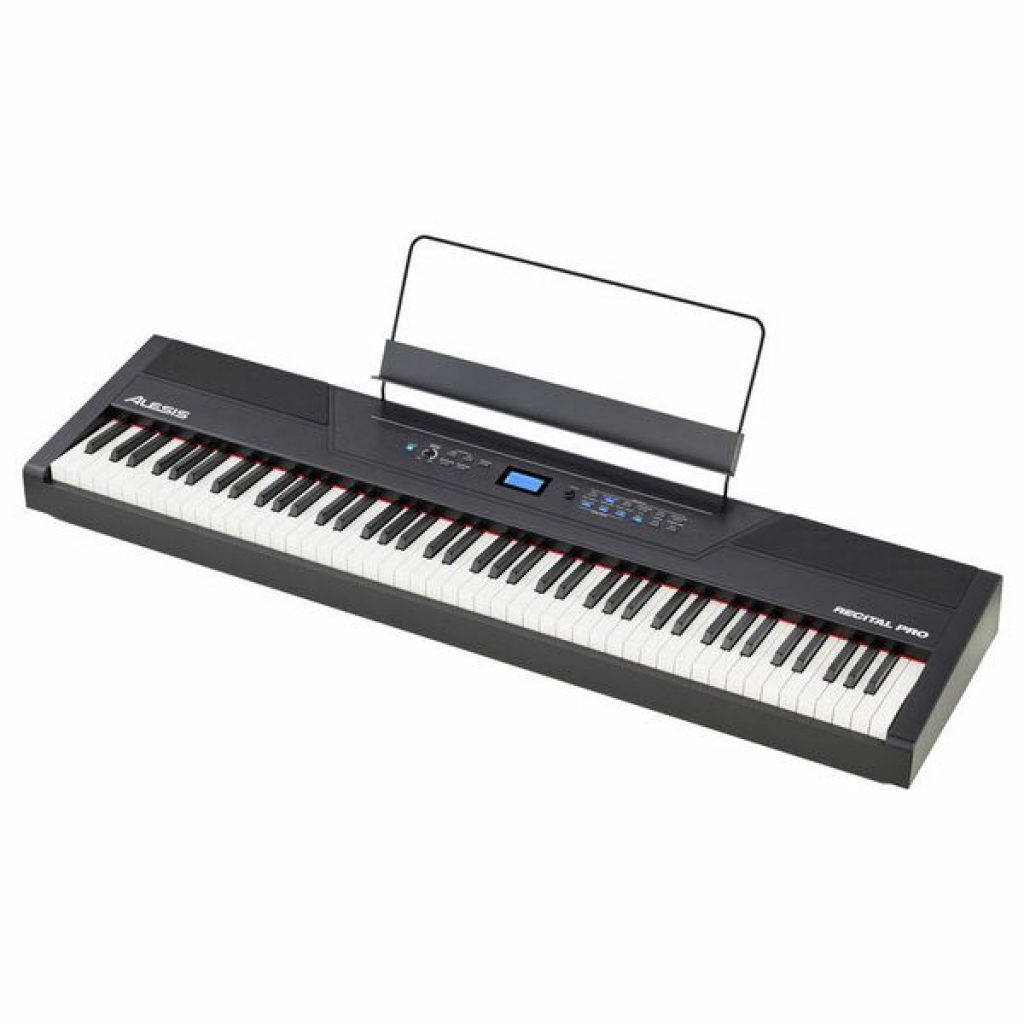
The Alesis Recital Pro has 88 fully weighted hammer-action keys. Certainly, you’ll be hard pressed to find another keyboard that does in this price range. However, the hammer action doesn’t give a very realistic acoustic piano feel. The depth of the keys feels quite different from an acoustic, which could cause problems for a student who learns on it and later on switches to an acoustic – or even a high-end digital. The sensitive keys respond to quiet and loud playing, however.
It’s a nice looking keyboard with quite a sleek design, but the plastic casing is a bit on the cheap side and the buttons don’t feel very substantial. The LCD screen is very basic but does the job.
The main piano sound is similar to those you’d find on slightly less expensive beginner pianos. But, you can layer two sounds, for instance piano and strings, which sounds quite good. That is mainly because the solo piano sound is somewhat disguised. For beginners, especially young children, the quality of the piano sound isn’t such a big issue. Other sounds included on the Recital Pro88 are electric piano, synth, strings, vibraphone and bass.
This keyboard has single track recording capability, layer function (to combine two different sounds across the keyboard), and lesson mode which splits the keyboard into two half size keyboards with the same pitches – useful for teaching. There is also a split mode so you can have two different instrument sounds, one assigned to the lower half of the keyboard and the other assigned to the higher notes. This can be fun for playing bass with the left hand and piano with the right, for instance. Or, you could play piano with the left and vibraphone with the right. There is a metronome and a transpose function.
Specifications
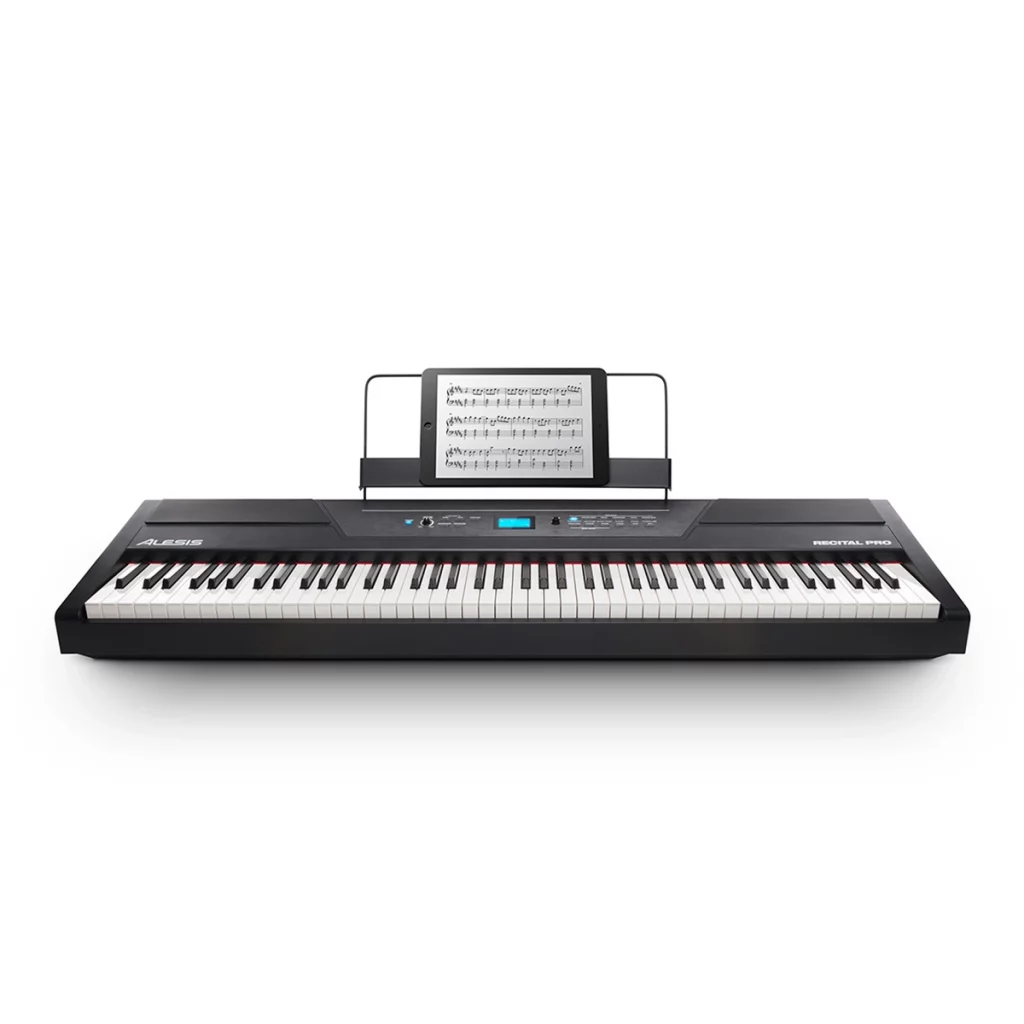
The Alesis Recital Pro 88 keyboard has 88 weighted hammer-action keys. Plus, it has adjustable touch sensitivity so you can tailor the resistance of the notes to your preference. For instance, you’d probably set it to “1” for a child and “3” for an adult. It has an LCD lighted panel to find your way around easily. It has 128 polyphony which means up to 128 notes can be sustained at once.
Connectivity includes power, headphone socket, damper pedal socket, two stereo outputs to connect to external amplifiers or other recording equipment and a USB-MIDI for connecting to your computer. This keyboard can also take 6 X D batteries when mains power is unavailable.
Who Is It Suitable For?
Beginners
For an absolute beginner who has never played before and wants to see if they enjoy piano and want to stick with it, this would be a fairly good option. For parents looking for a beginner keyboard for their child, this would be an inexpensive starter before investing in a better keyboard once the child has shown an interest and made some progress.
Having said that, many teachers worry that using an inexpensive piano keyboard that feels very different from an acoustic piano gets students into bad habits that are extremely difficult to fix later and may even cause damage. Having to press too hard can put strain on little fingers and after months of practicing that way, result in an insensitive touch on a real piano. For this reason, compare some of the smaller keyboards by Yamaha, Roland or Casio for other choices with keys that are closer to the feel of an acoustic piano.
Intermediate players
Intermediate players will have played on another piano keyboard and therefore are likely to find both the touch and the sound of the Alesis Recital Pro to be inadequate. Of course, this keyboard could suffice for a while and could certainly be used as a spare practice piano in a second home or in a different room.
The fact that this keyboard is extremely limited for creative purposes means it meets neither requirement – not the best piano sound and feel for more advanced piano players – but also not a great choice of creative sounds, coupled with the inability to multitrack record. This keyboard could work as a MIDI keyboard for recording into a DAW (Digital Audio Workstation) just as long as it doesn’t require a lot of high-level keyboard playing. But there are weighted MIDI keyboards around this price point anyway.
Pros and Cons
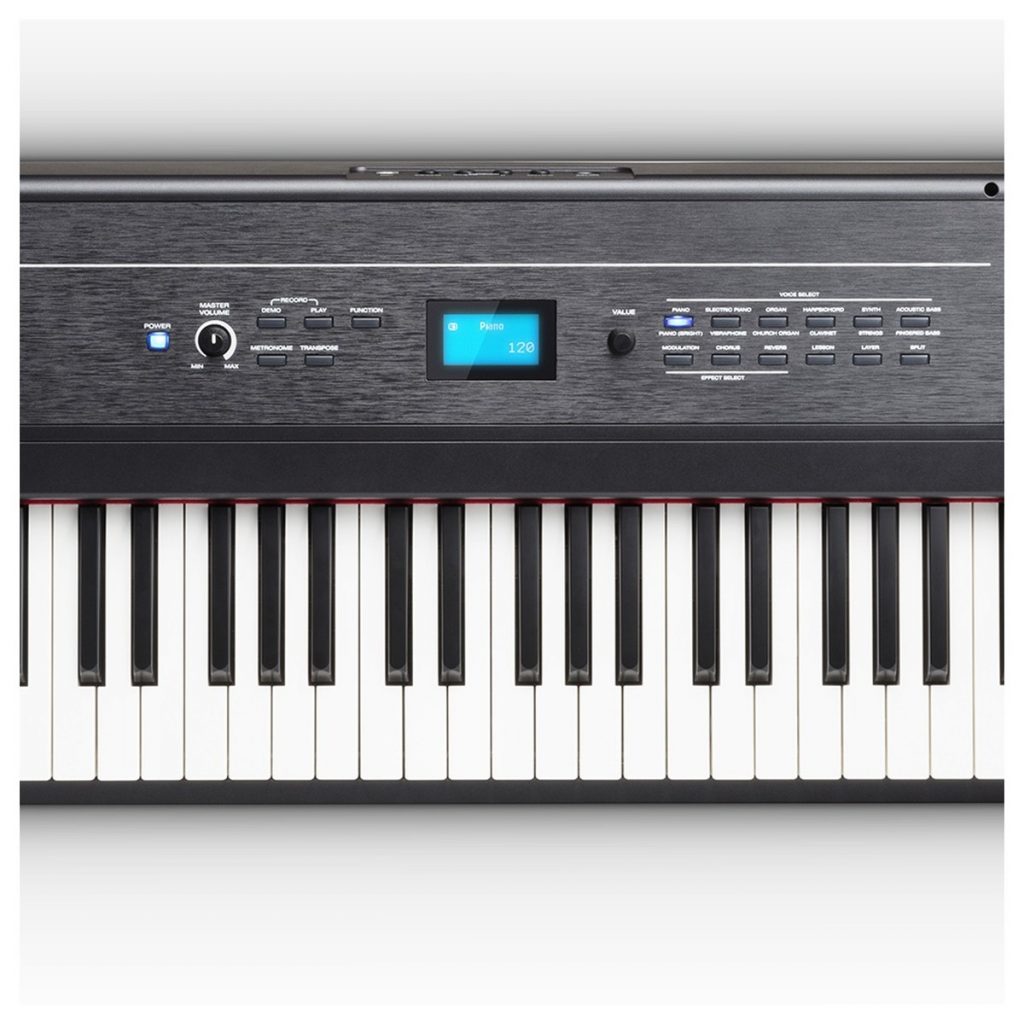
Pros
- Extremely affordable for a full-size keyboard
- 88 weighted hammer-action keyboard – unusual in this price range
- At 26lbs, quite lightweight for a weighted keyboard
- Works with 6 X D batteries – also unusual for this type of keyboard
Cons
- In spite of weighted hammer-action, falls short of replicating a piano
- On-board sounds are not very high quality – (but you can’t expect that at this price) but the speakers sound quite good.
- Limited choice of sounds (only 12)
- Limited recording capability (1 track)
Quick View
| Keys | 88 fully weighted, hammer-action keys textured, non-textured, full size |
| Touch sensitivity | Touch sensitive, 3 levels, or off |
| Sounds | 12 sounds, including piano, electric piano, organ, harpsichord, vibraphone, strings, synth & bass. 20 on-board songs |
| Recording capabilities | Simple 1-track recording |
| Metronome | Built-in metronome (30 – 280BPM) |
| Polyphony | 128 notes can be played/sustained at once |
| Speakers | 4 speakers: 2 X 20W woofers, 2 X 10W tweeters |
| Headphones | 1 standard headphone jack |
| Accessories | Music rest, power cable. Alesis Recital Pro 88 Keyboard manual. (Also takes 6 X D batteries, not included) Pedal bought separately. |
| Price point | $460 |
| Weight and Dimensions | 26lbs
51” X 13.8” X 5.5” |
Conclusion
The Alesis Recital Pro 88 keyboard falls between two categories. On the one hand, the full size 88 weighted note, hammer-action keyboard falls into the category of advanced player requirements. On the other hand, they haven’t paid so much attention to the actual piano sound that an advanced player would be satisfied. Would any advanced player want one without the other? It’s doubtful when so many other choices that deliver both exist. The rest of the functions are similar to those you would find on a beginner’s keyboard. Surely an advanced player requiring weighted keys would need more in the way of sounds and recording capability.
Another way it falls in between a beginner and advanced keyboard is that it has lesson mode to split the keyboard into two identical set of pitches, making it easy for a teacher to demonstrate while sitting next to the student who then has a clear view of what the teacher is doing. However, there are no on-board lessons. There is also no ability to directly connect to a device with a teaching app and no Bluetooth. Does this mean the keyboard is suitable mostly for teachers? Or students whose teachers come to their home to give lessons? I think most teachers wouldn’t recommend this keyboard for the reasons stated earlier. So, maybe leaving on-board lessons off was an oversight on the part of the designers.
At 26lbs, it also falls in between being easily portable and just a little bit weighty compared to real beginner keyboards that might only weigh 10 -15lbs. It would be easy enough to carry it from room to room, but a gigging musician would likely go for a heavier keyboard with better quality and selection of sounds because usually, it only has to be carried to the car.
Also, the keys themselves don’t quite live up to the standard of some of the bigger names in the industry such as Yamaha, Casio and Roland who make very high-quality weighted and graded hammer-action keys. Indeed, these manufacturers make keyboards that are lower priced than the Alesis Recital Pro and yet have better sounding pianos – but don’t come with the 88 weighted keys. They are more likely to have 61 keys – but this is enough for a beginner.
The final verdict is that this keyboard is fine for a beginner for a while and would certainly be useable as a spare practice or MIDI keyboard. Ultimately, do your homework on more beginner keyboards that might only have 61 keys but more functions, better recording capability and more choice of sounds before you decide to buy this one. If at all possible, try out several keyboards in the music store to hear the difference in sound quality. If you can’t get to a music store, there are plenty of videos demonstrating the sound and functions which you can probably judge fairly well if you listen with a good pair of headphones.


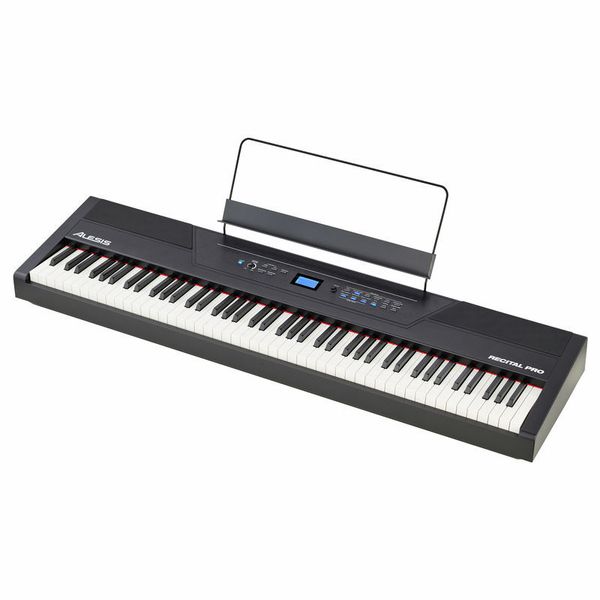
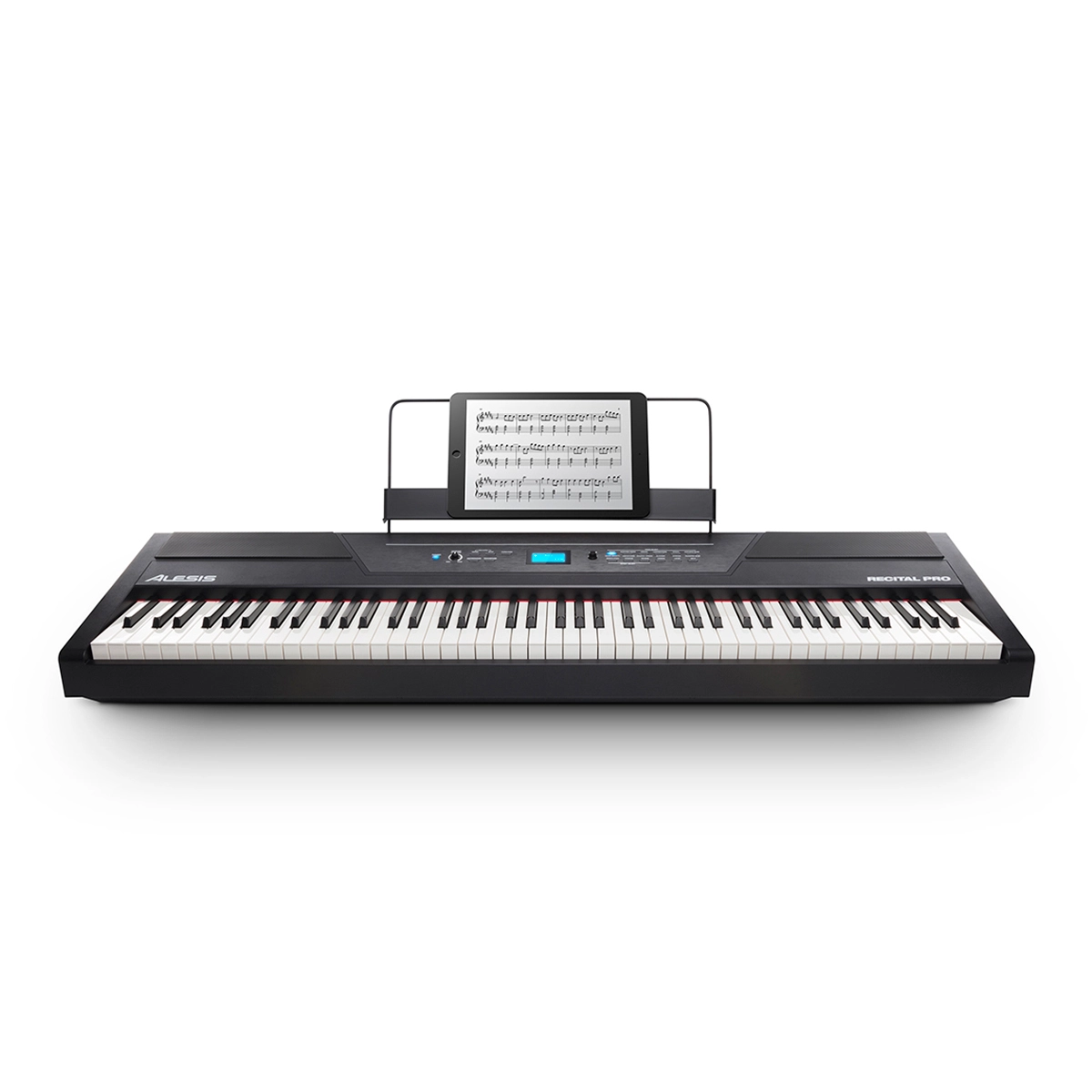
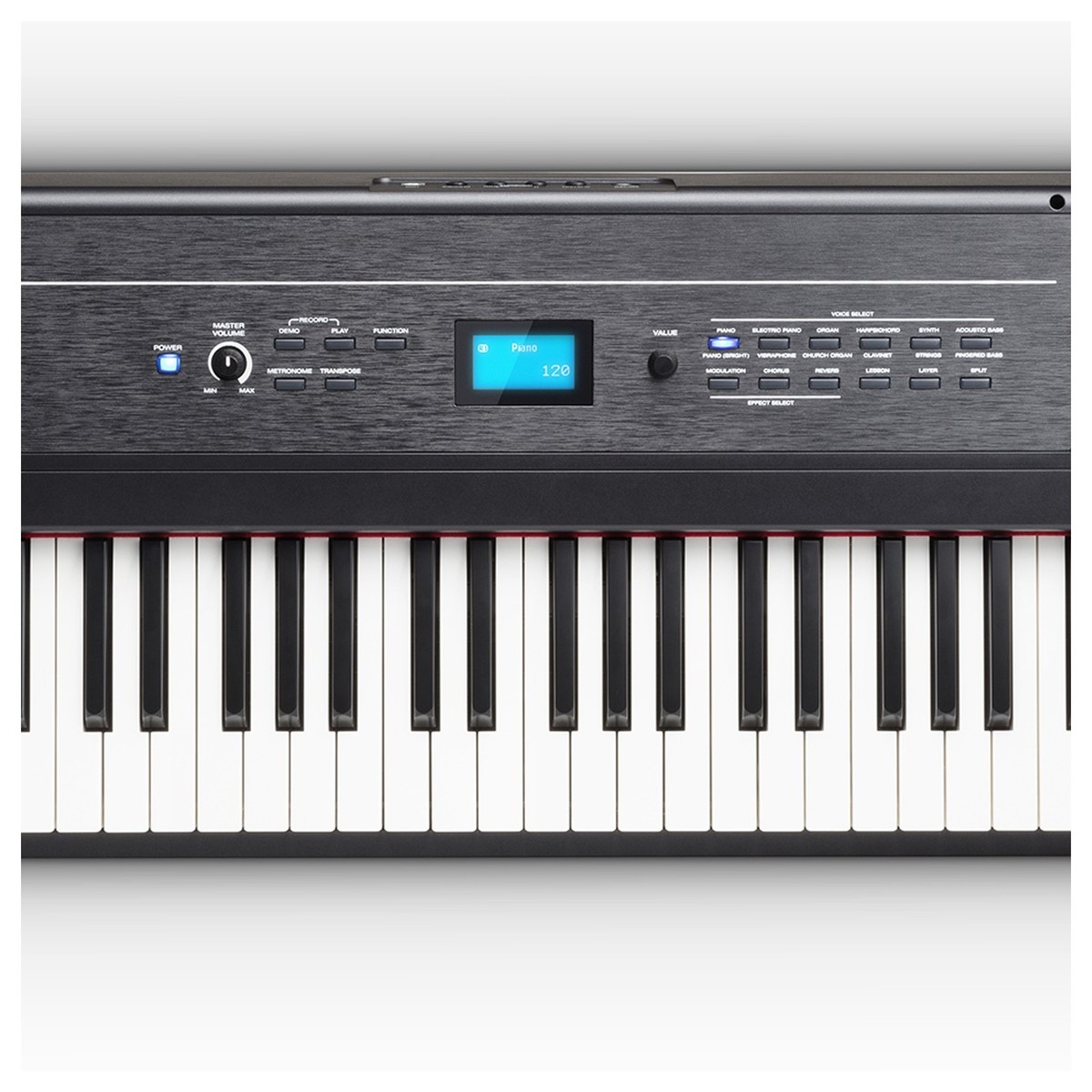
 We rated the Alesis Recital Pro a 7/10. This keyboard is aimed at beginners to early intermediate players. While it does have weighted hammer action, it isn’t the highest quality action. We like that it’s affordable and lightweight, but, it also misses the mark a bit when it comes to realism in the sound bank. Because it doesn’t serve the intermediate end of the spectrum very well, we gave it 7/10. That being said, we still think it suits beginners quite nicely!
We rated the Alesis Recital Pro a 7/10. This keyboard is aimed at beginners to early intermediate players. While it does have weighted hammer action, it isn’t the highest quality action. We like that it’s affordable and lightweight, but, it also misses the mark a bit when it comes to realism in the sound bank. Because it doesn’t serve the intermediate end of the spectrum very well, we gave it 7/10. That being said, we still think it suits beginners quite nicely!



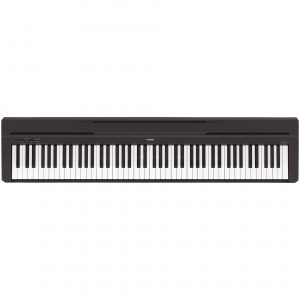
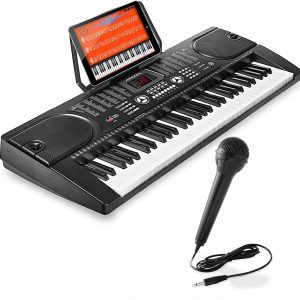
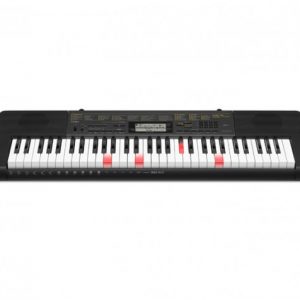
There are no reviews yet.